Planning a school trip can be both exciting and a bit overwhelming, especially when it comes to ensuring all the necessary permissions are in place. A well-crafted letter of authorization is essential for parents to grant their consent, ensuring everyone understands the details of the adventure ahead. It's a simple yet important way to keep parents informed and involved in their child's experiences. If you're looking to create the perfect authorization letter for your school trip, keep reading for some helpful tips and a sample template!
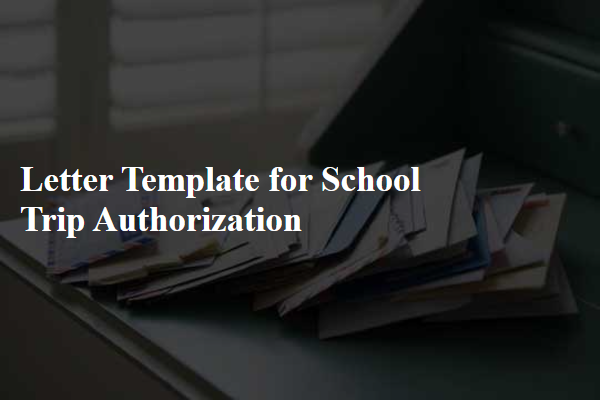
Student Information
A school trip authorization requires detailed student information to ensure safety and organization. The student's full name, including any middle names, should be noted clearly. Essential details such as date of birth (day, month, year) assist in verifying age. Parental or guardian contact information, including phone numbers and email addresses, must be included for emergency communication. Address information (street name, city, postal code) provides context for the student's home location. Additionally, any medical conditions or allergies should be documented to prepare for health-related needs during the trip. Finally, the student's grade level and homeroom teacher's name help in coordinating with school staff involved in the trip.
Trip Details
An authorization letter for a school trip typically includes essential details such as the destination, date, duration, and purpose of the trip. For instance, a trip to the historical significance of Gettysburg, Pennsylvania, scheduled for March 15, 2024, aims to enhance students' understanding of American history and the Civil War events that transpired in that region. The trip will last for one day, during which students will participate in guided tours, educational workshops, and discussions led by historians. Parental consent is crucial for student participation, ensuring safety and accountability throughout the excursion. Furthermore, the letter should outline the transportation method, likely a charter bus, and the expected departure from the school at 8:00 AM, with a return estimated around 5:00 PM. All relevant contact information for both the teachers supervising the trip and emergency contacts should also be included to provide reassurance to parents.
Parental Consent Statement
A school trip authorization form is a crucial document that provides necessary consent from parents or guardians for students to participate in organized activities outside the school premises, such as field trips to historical sites, science museums, or nature reserves. This authorization ensures that the school has permission to take students, typically detailing the trip's date, destination, itinerary, and specific activities planned. Additionally, contact information for parents or guardians is often required for emergencies, while space for any medical restrictions or allergies is crucial for student safety during the trip. Compliance with legal requirements, such as insurance coverage and adherence to transportation safety guidelines, typically represents a vital aspect of the school's obligations during outings.
Emergency Contact Information
Emergency contact information is crucial for school trips, ensuring safety and quick communication. Parents or guardians provide details such as their full names and primary phone numbers, typically including a home and mobile number. In some cases, alternative contacts like a trusted friend or relative are also necessary for situations where parents may be unreachable. Medical information should include any allergies or special medical conditions, with corresponding emergency procedures outlined. Additionally, knowledge of the nearest hospital, such as City General Hospital located at 123 Main St, remains vital for quick access to medical attention if needed. This comprehensive information helps teachers and trip organizers respond effectively during unforeseen incidents, ensuring children's safety throughout the school excursion.
Signature and Date
A school trip authorization form typically includes important information such as the student's name, class, destination, date of the trip, and purpose of the visit. Parental consent is essential, often requiring a signature from a parent or guardian, along with the date of approval. This document ensures that the school has permission to take students on educational outings, allowing for proper planning and safety measures. It's crucial for the school to maintain records of these authorizations in compliance with safety regulations and to ensure the well-being of all participants during the trip.

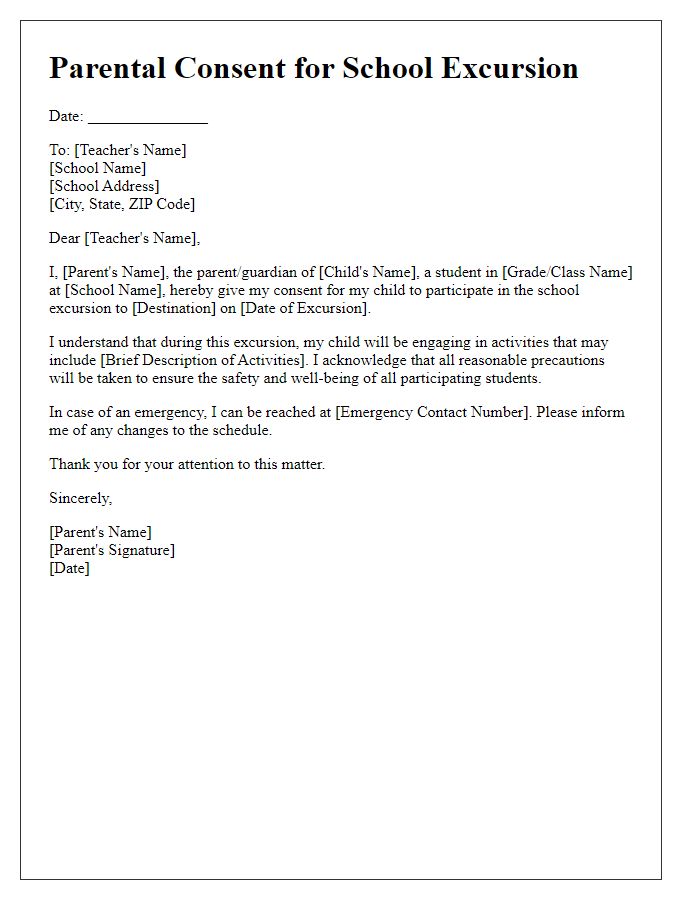
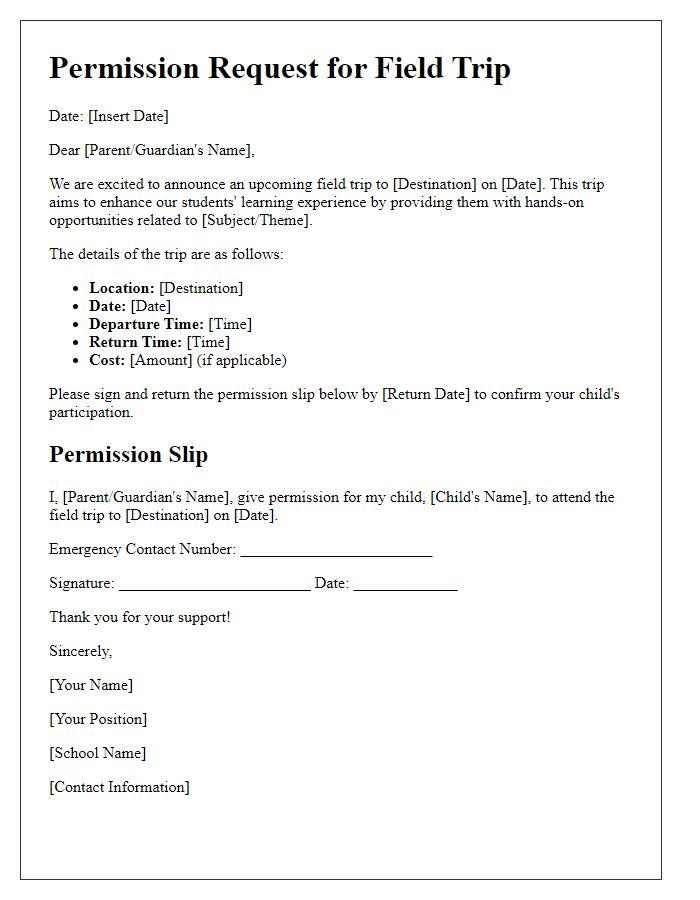
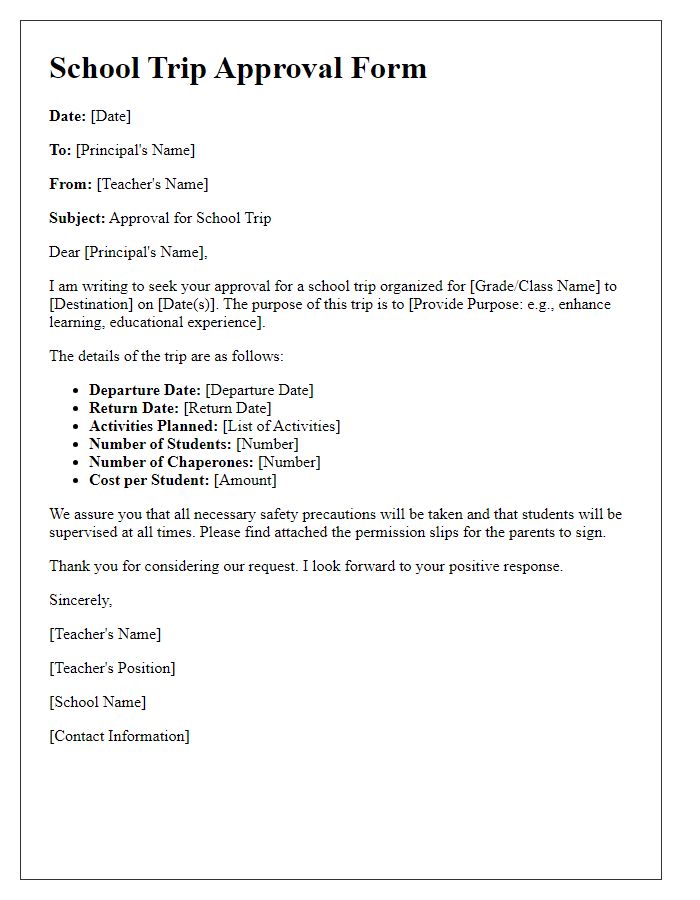
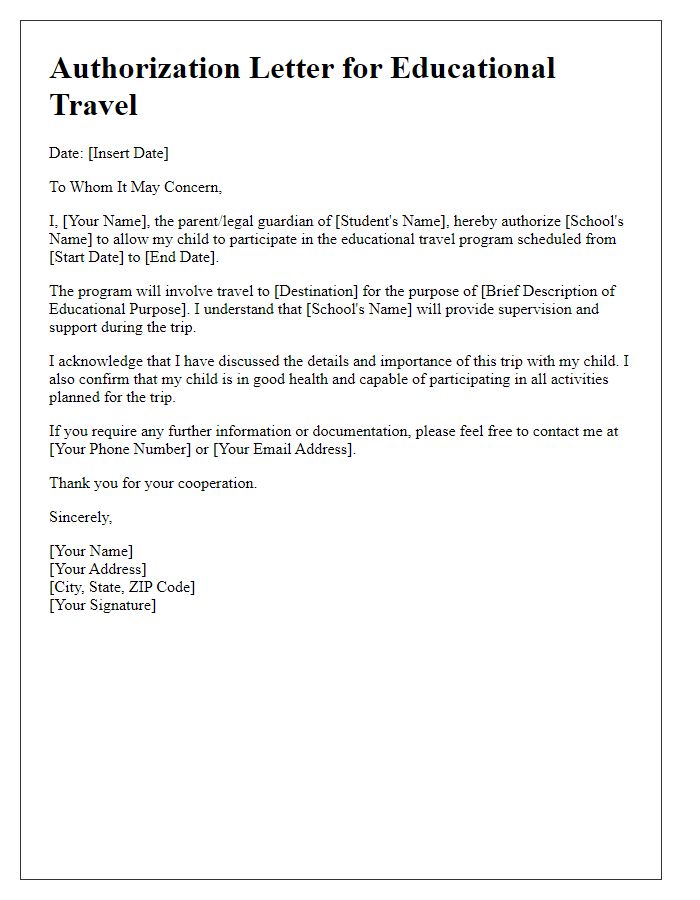
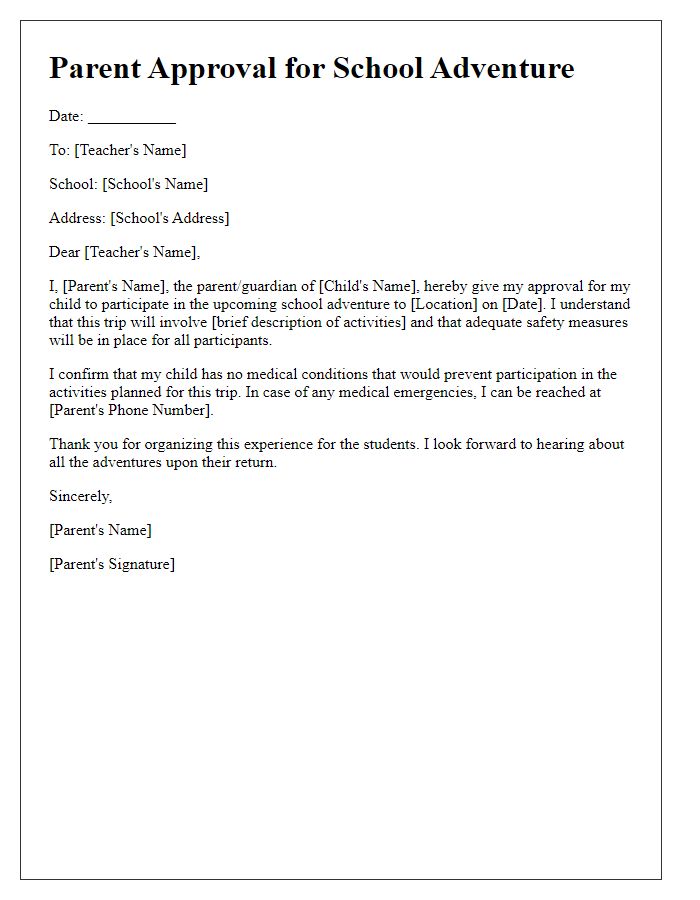
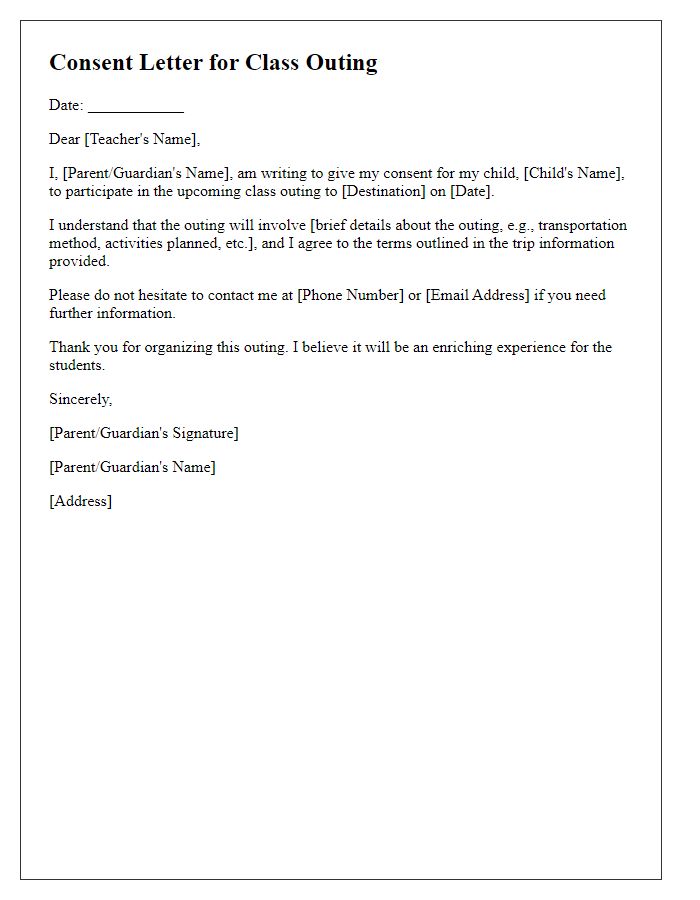
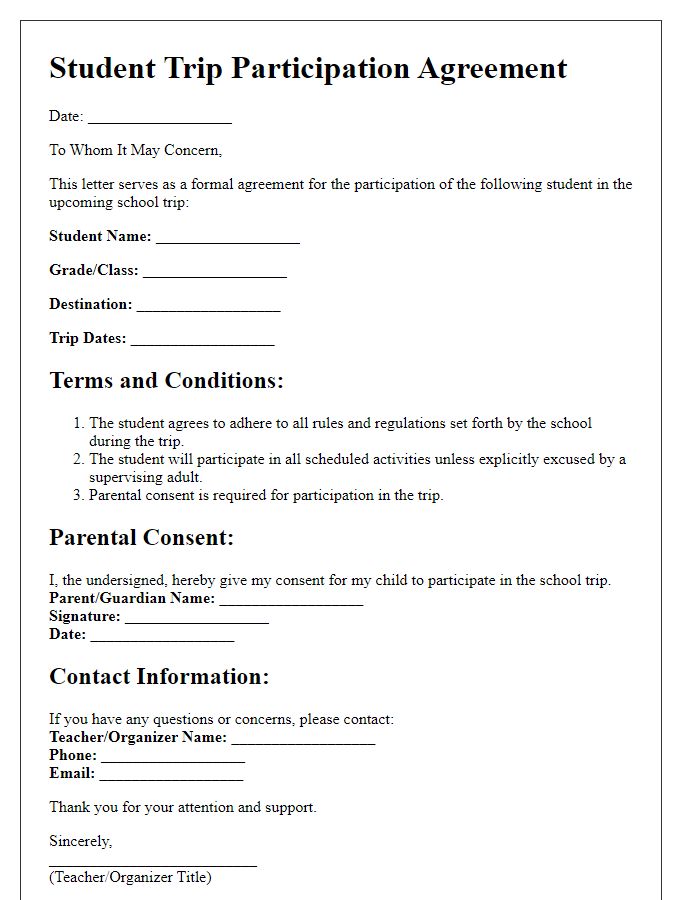
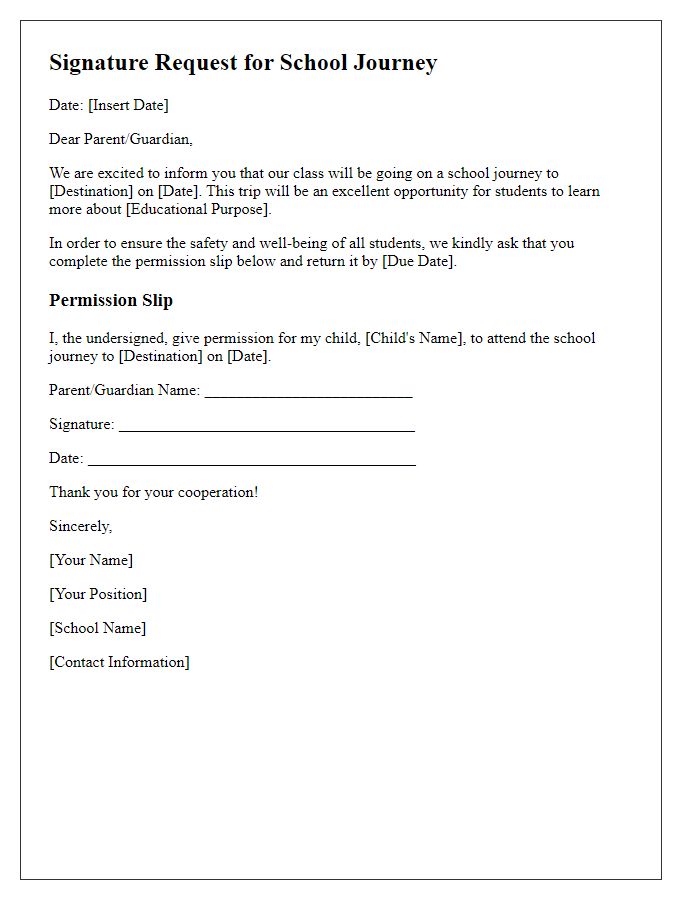
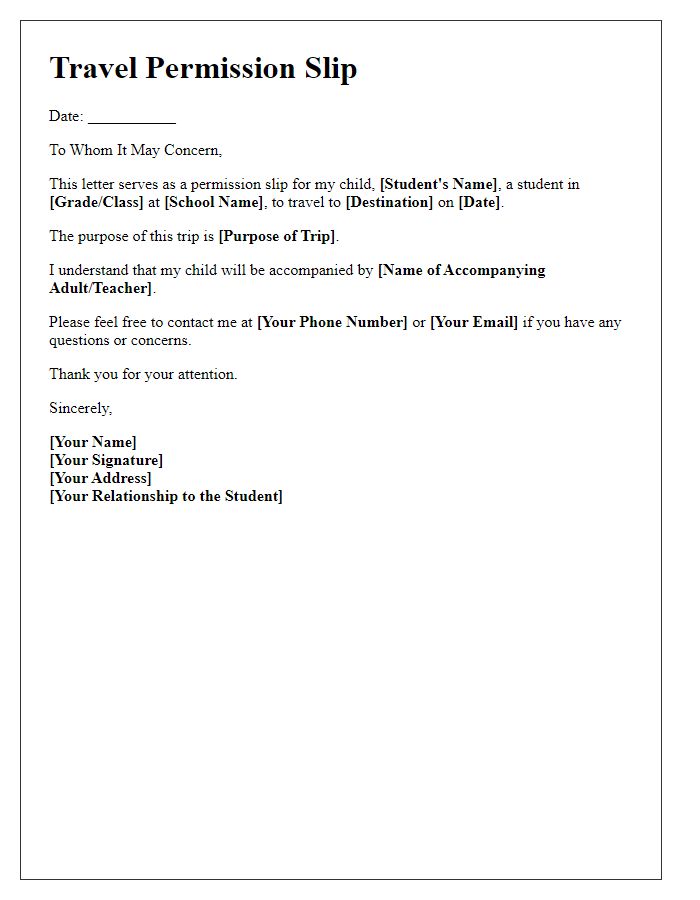
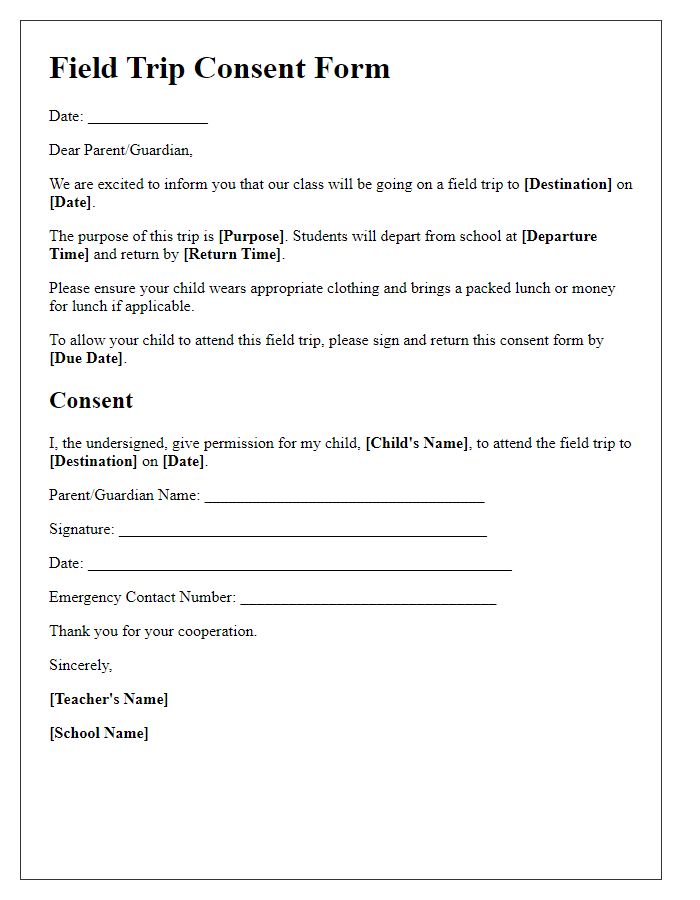


Comments